Dumplings made with century-old recipe beckon crowds in Indonesia's Kalimantan
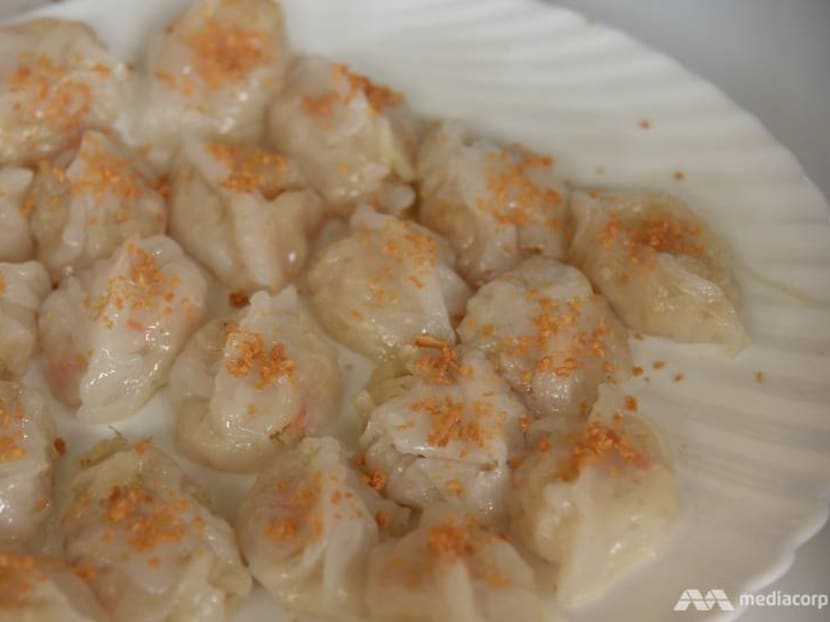
Choi Pan is a steamed dumpling which recipe originates from China. (Photo: Kiki Siregar)
SINGKAWANG, West Kalimantan: It was only 10am but Mr Iwan Murtanto Tjhia was already busy running around his kitchen, steaming dumplings and coordinating with his siblings.
Iwan and his sisters Mdm Lily Tjhia and Mdm Tasya Elizabeth Tjhia own an eatery in Singkawang, West Kalimantan, that specialises in just one item - choi pan, a type of steamed dumpling with shredded turnip and dried shrimps wrapped in translucent, chewy skin.
By late morning, more than a hundred people had flocked to their restaurant, hoping to sample the famous bite-sized choi pan.
What is its unique selling point? A recipe from China that dates back to more than a century.
“This is the oldest choi pan in Singkawang. Everybody here knows it,” Iwan told CNA.
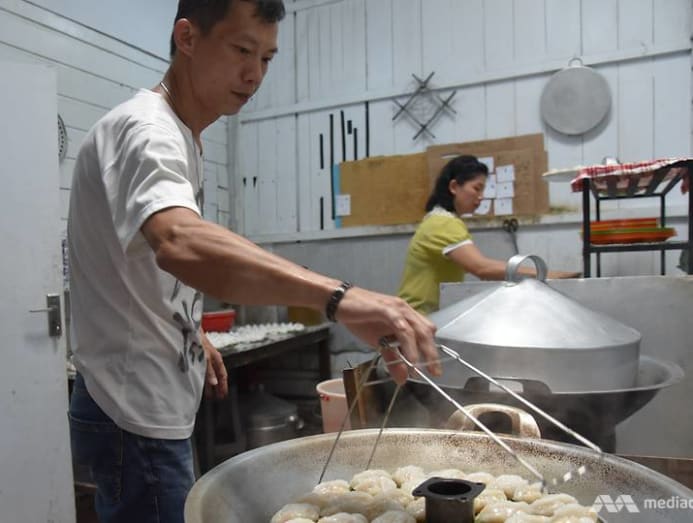
The Tjhia family hails from Fujian, China, but moved to the Malaysian peninsula more than 100 years ago.
When there was unrest in then Malaya, the family decided to migrate to Singkawang and built a house in the coastal city in 1901.
The first Tjhia who landed in Singkawang, Mr Tjhia Siu Xi, worked hard to be successful in the new city.
READ: New Indonesia capital - Land prices set to soar but not all locals thrilled
He built a fleet to export local farming commodities to Singapore and soon became a well-respected man in Singkawang.
Since more than 200 years ago, Singkawang’s population has been predominantly people of Chinese descent as workers of Hakka origin came to the area on the invitation of local sultanates to work as miners.
FAMILY DISH TURNED BUSINESS
The Tjhia family found a new home and a snack they regularly enjoyed at home, choi pan or also called chai kwe or chai kue in West Kalimantan, became an important feature of the local culinary scene.
It was Iwan's mother who first saw the business potential of their beloved dumpling. She set up the business in 1979.
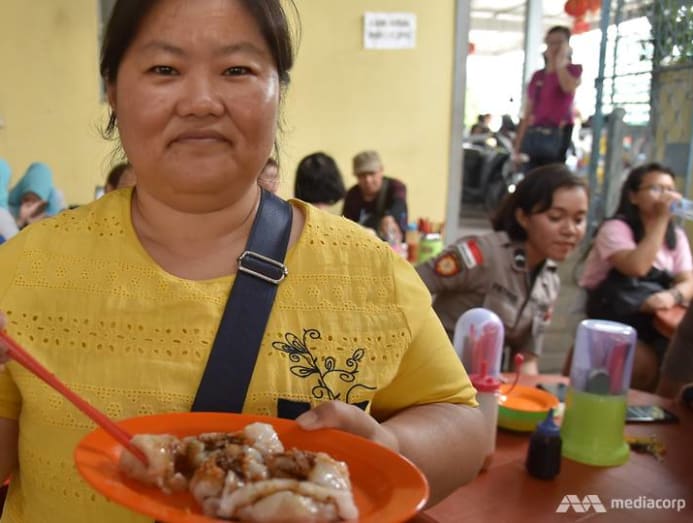
"My task was to go around Singkawang city to sell the choi pan,” Iwan recounted.
Ten years later, people started buying the dumplings in bulk to resell to school canteens.
In 2015, the Tjhia family decided to cut out the middlemen and only allow customers to buy directly from the establishment. However, the eatery accepts bulk orders in advance for special events and gatherings.
The popularity of Tjhia's choi pan inspired others to start selling their versions of choi pan, but the Tjhia's remained the most sought-after.
Iwan's mother passed away last December, but that has not stopped the siblings from running the business.
READ: Cafe chain in Indonesia plans big expansion with investment from Jay-Z and Serena Williams
The Tjhia's choi pan is available in three fillings - turnips, chives and bamboo shoots.
To make the choi pan, they first stir-fry the shredded vegetables with onion, dried shrimps and carrot.
The fillings are then wrapped in dumpling skin made of rice flour and tapioca flour.
Tasya and another employee, Ms Fatimah, is in-charge of wrapping the dumpling, which she said is not an easy task.
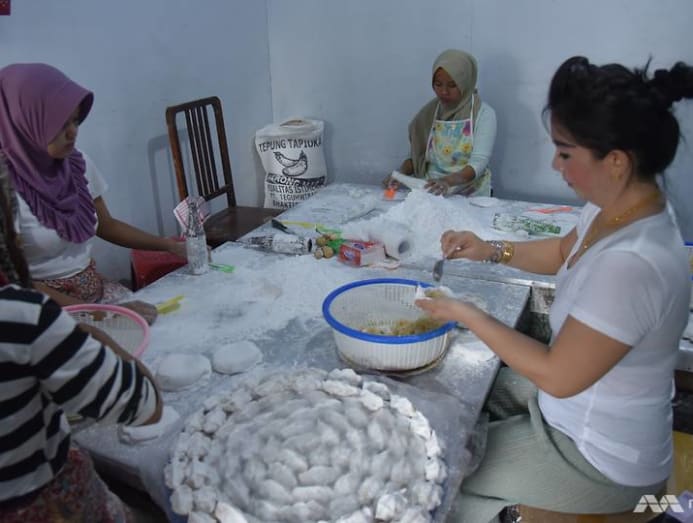
Since she has been doing the same job for 15 years, Tasya can make a big plate of 300 choi pan in 20 minutes.
Lily, another sister, then places the choi pan into the steamer.
Iwan is responsible for steaming and then brushing the dumplings with a thin layer of oil afterwards.
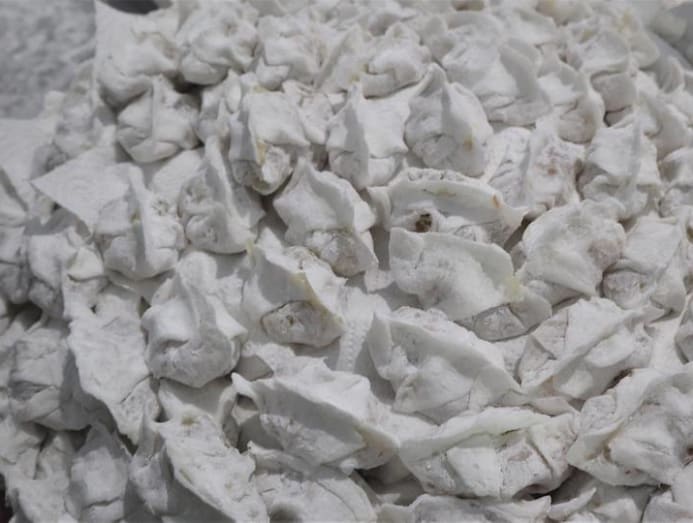
The dumplings, topped with fried shallots, are then served together with soy sauce and sweet chilli sauce.
Each choi pan is priced at 2,000 rupiah (US$0.15) and the customers can decide how many pieces they want to eat. There is no fixed portion.
On average, the family makes thousands of choi pan daily.
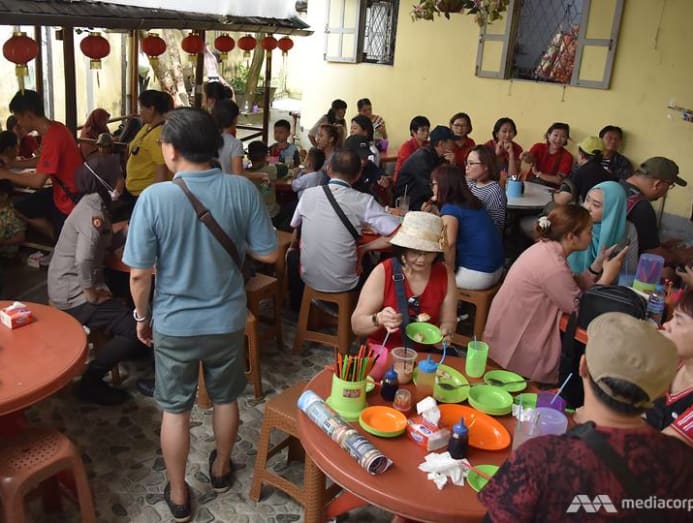
On busy days, the Tjhia siblings barely have time to get lunch.
When asked what keeps them going, Lily replied: “We are siblings. So whatever happens, we have to stick together.”
RECIPE MODIFIED TO SUIT INDONESIAN PALATE
When CNA visited the eatery a day before Chap Goh Mei, the place was full and huge crowds were queuing to get a seat.
Due to the crowds, only the turnip choi pan - the original variant and the bestseller - was available.
READ: Family recipes the secret of Bali's famous nasi campur warung
During special occasions like Chinese New Year and Chap Goh Mei, the eatery is especially crowded.
While choi pan in China may contain lard and pork, the Tjhias have modified their recipe to cater to the Indonesian palate, as majority of Indonesians are Muslims.
Tjhia’s choi pan has gained popularity over the years as more tourists come to Singkawang to witness the yearly Chap Goh Mei festival.
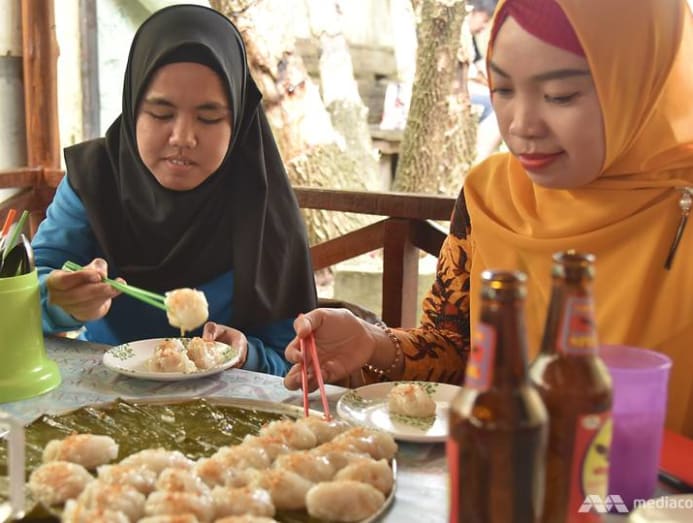
The eatery and the family’s traditional house, which is next to the restaurant, is regarded by some as a tourist attraction.
READ: Why Indonesia's Bandung is a hotbed for culinary oddities and invention
The restaurant has been visited by famous figures such as Indonesia’s Coordinating Minister for Political, Legal, and Security Affairs Mahfud MD. It was also the shooting location of a film starring the country’s top celebrity Dian Sastro.
Mr Ame Doda from Italy visited the restaurant for the first time and was impressed by the taste of the Tjhia’s choi pan.
“It is delicious. This is one of my favourite food here. You have this in Malaysia too, but this one is special,” he said.
Mdm Thora Smith-Krajenbrink, a 79-year-old Dutch national of Indonesian descent who visited the restaurant with her family, said she was curious to try out the Tjhia's choi pan after seeing it on TV.
“It’s different to me because we eat other types of food in the Netherlands,” she said.

Choi pan, however, is not new to those from West Kalimantan’s capital Pontianak, but a woman who only wanted to be known as Ms Vivi said those served by the Tjhias taste better.
“The choi pan’s texture is different. It is chewy. And the fillings taste fresh and crunchy.
“But what makes it different is its chilli sauce. It is tasty and has a specific aroma. That’s what makes it stands out from the others,” she said.
Lily said that flavour is not the eatery's only secret weapon. The key is hard work.
”We have to work meticulously and diligently. And we will continue to uphold these traits,” she said.






